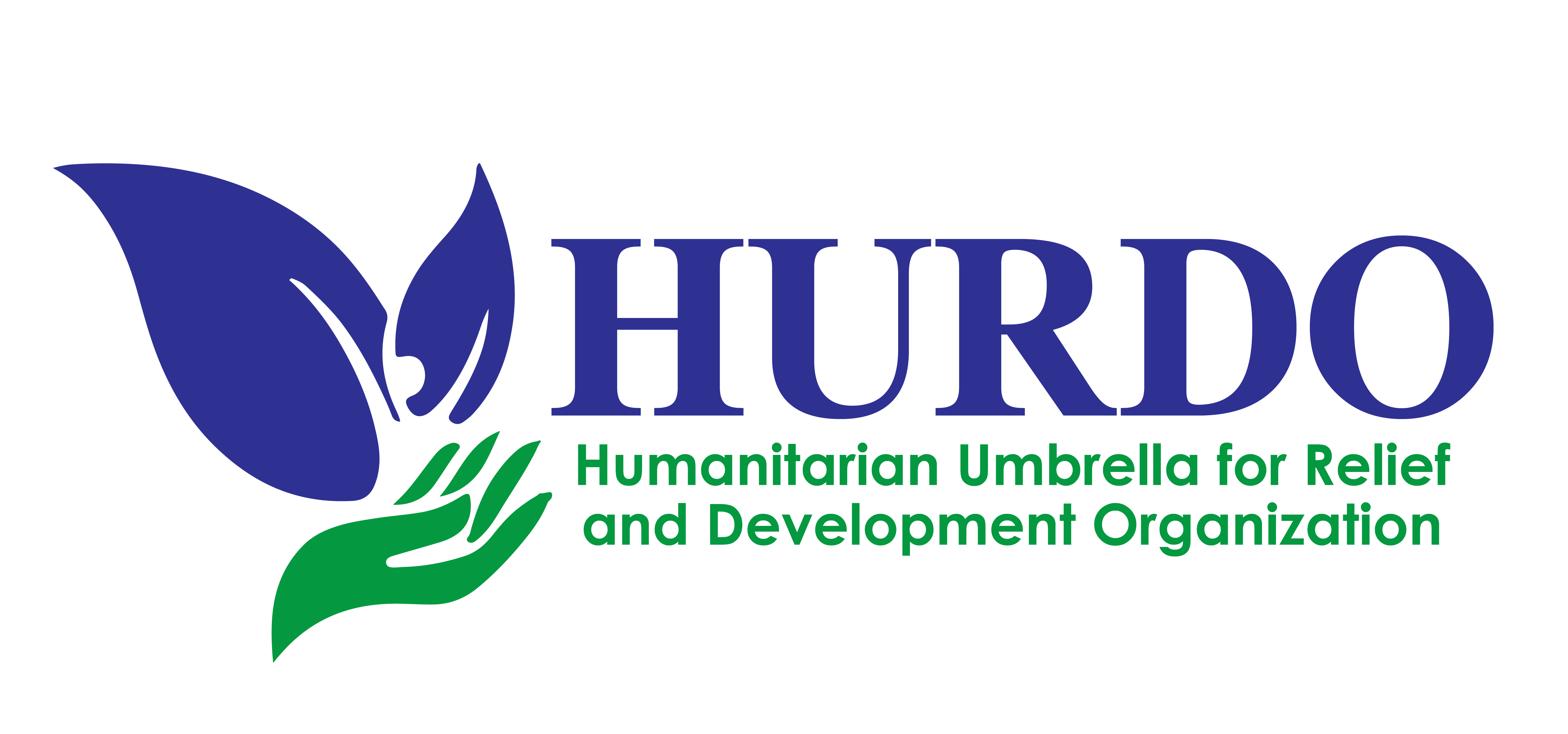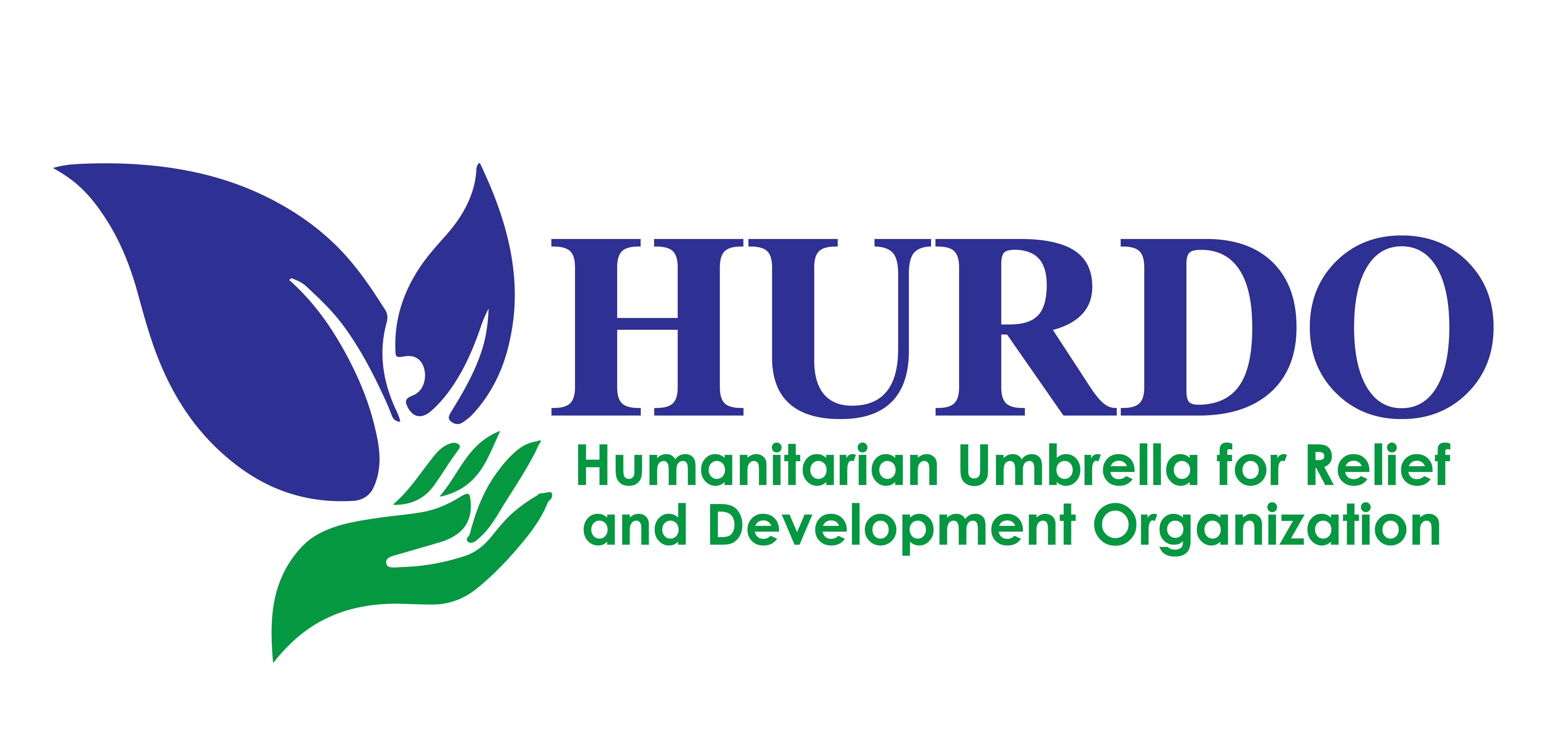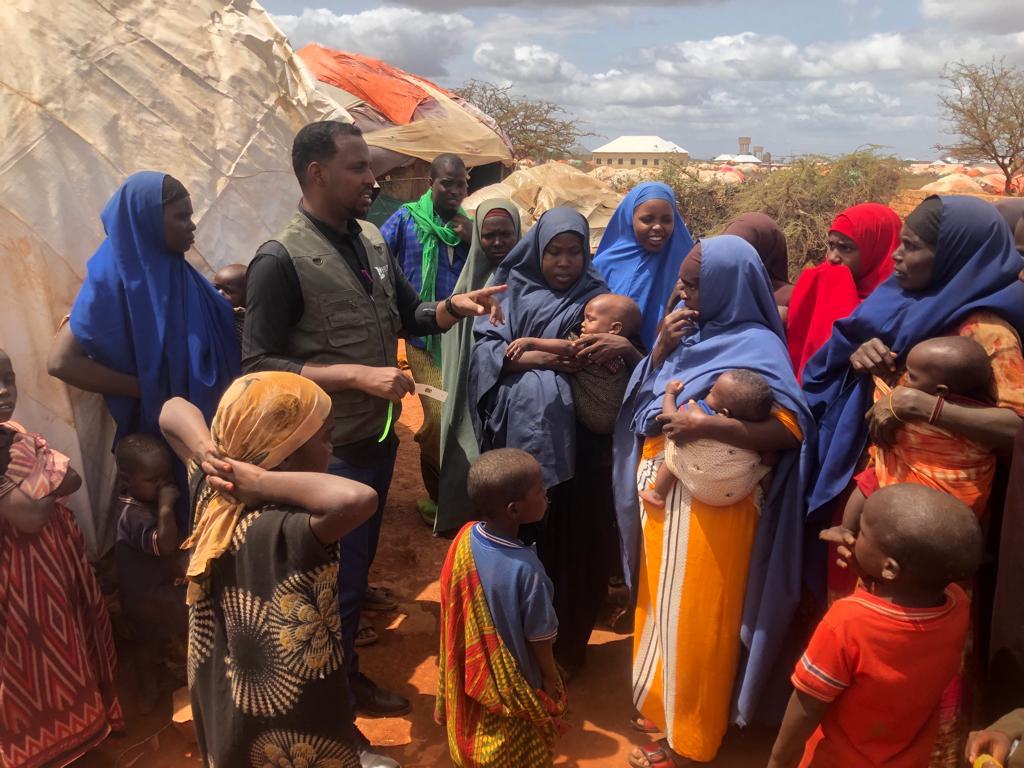Background and Rationale
Mogadishu, the capital city of Somalia is increasingly and unexpectedly becoming a humanitarian safe space for individuals and families fleeing from conflict in Yemen, Sudan, and Syria. This influx of refugees is despite Somalia’s ongoing recovery from over 30 years of conflict and emerging challenges posed by violent extremists. As of the last quarter of 2024, HURDO recorded 300 families from Yemen, 100 from Sudan, and 120 from Syria in the course of implementing various humanitarian interventions under the camp coordination and camp management (CCCM) projects. Most of these families have a membership of between 6-8 people, who face the challenge of extreme financial hardship. Most of the refugee communities (70%) survive on just one meal a day, which is delivered through the work of humanitarian organizations like HURDO. We note that this situation is bound to be dire, particularly as the Holy month of Ramadhan approaches. This is a significant concern as Ramadhan is a revered time of fasting, reflection, and community.
The Holy Month of Ramadhan emphasizes charity (Zakat) and caring for the less fortunate in our families and communities. However, given the financial distress faced by refugee families and the limited resources and capabilities of HURDO, we foresee that these realities will make it challenging for them to observe Ramadhan’s spiritual obligations fully.
HURDO’s Ramadhan Aid Support Initiative seeks to alleviate these hardships by providing essential food packages primarily for refugee families. HURDO will equally endeavor to provide, where possible, similar packages, to several local internally displaced populations (IDPs) in the IDP and refugee camps to enhance community harmony and support. Moreover, HURDO will work with government agencies and religious leaders in implementing the project. This is part of our participatory approach that mainstreams the place and role of local actors and government agencies for project success and impact.
Each family will be provided with two packages to cater for Iftar and Eid. The food parcels will be designed to suit the refugee populations’ tastes and nutritional needs. They will include rice, pulses, sugar, oil, salt, and dates. The food packages will sustain an average of seven people, thus ensuring the families can meet their nutritional needs for Sehri and Iftar without added financial strain.
The project’s interventions not only addressed the beneficiaries’ immediate nutritional requirements but also strengthened community bonds and reinforced the values of compassion and solidarity which are central to Ramadhan. By involving local IDP communities in the aid process, HURDO strengthens and promotes the aforementioned values. Moreover, HURDO will prioritize, where feasible, the procurement and distribution of locally sourced food items to support Somalia’s fragile but burgeoning economy. This is anticipated to amplify the initiative’s impact.
HURDO’s approach to providing vital food aid to refugees and disadvantaged families is geared toward ensuring that these families can solely focus on fasting, prayers, and spiritual rejuvenation during this sacred month, as commanded by Allah SWT. Through this project, HURDO aims to bring hope and relief to those enduring one of the most challenging periods of their lives.
Project Goal and Objectives
Project Goal : Provide essential food support to refugee families for nourishment during Ramadhan
Project Objectives (PO):
- Procure and deliver 2 food parcels (for Iftar and Eid) to 520 refugee families and 400 local IDPs during Ramadhan in IDP and refugee camps in Mogadishu, Somalia.
- Enhance community participation by involving local IDPs to promote community and religious harmony and resilience.
- Support local businesses and communities by sourcing food items from local suppliers
Project Strategies and Activities
Project Strategies:
- Community-centered project implementation through the engagement of refugees and host IDP communities in project planning and distribution
- Local resource optimization through procurement of food supplies from local vendors and suppliers
PO I : Procure and deliver 2 food parcels (for Iftar and Eid) to 520 refugee families and 400 local IDPs during Ramadhan in IDP and refugee camps in Mogadishu, Somalia
Project Activities under PO I:
- Registration of eligible refugee families from Yemen, Sudan, and Syria and local IDP families.
- Procure and package essential food items.
- Distribute food parcels to targeted families while upholding equitable access and inclusion of vulnerable refugee and local IDP groups.
PO II: Enhance community participation by involving local IDPs to promote community and religious harmony and resilience
Project Activities under PO II:
- Organize community and stakeholder meetings to involve refugee and host community representatives, religious leaders, and government agencies in planning and decision-making.
- Establish a feedback mechanism to ensure transparency and accountability in food pack distribution.
- Train volunteers to assist in food distribution and strengthen logistical support.
PO III: Support local businesses and communities by sourcing food items from local suppliers
Project Activities under PO III:
- Identify local suppliers to source and package appropriate food items.
- Negotiate fair pricing to maximize the number of beneficiaries while supporting local businesses.
- Monitor the procurement process to ensure the quality and timely delivery of food packs.
Expected Outcomes
- Improved nutritional well-being for 520 refugee families and 400 local IDP families during Ramadhan.
- Strengthened social cohesion and interactions between refugees and host communities through collaborative efforts.
- Economically boost local businesses through the procurement of food supplies.
Budget
| Beneficiary Group Information (Families) | Food packs (2 food packs per family for Iftar and Eid) | Expected Beneficiaries/ Reach (Estimated 7 people per family) | Unit Cost (2 food packs in USD) | Total cost (2 food packs * Unit Cost) |
|---|---|---|---|---|
| Refugees: 300 Yemen | 600 | 4,200 | 60 | 36,000 |
| Refugees: 100 Sudan | 200 | 1,400 | 60 | 12,000 |
| Refugees: 120 Syria | 240 | 1,680 | 60 | 14,400 |
| Local IDPs: 400 | 800 | 5,600 | 60 | 480,000 |
| Project administration & Logistical Cost | 1 | 1 | 6,000 | 6,000 |
| Total | 12,880 | 1 | 60 | 116,400 |
Implementation Plan
The implementation of the Ramadhan Aid Support Project for refugees from Yemen, Syria, Sudan, and local IDPs will be undertaken over a 2-month period, from 15th February to 15th April 2025. The implementation will be undertaken in three distinct phases. This will ensure that the project is aligned with the aforementioned goal, objective, strategies, and activities, thus ensuring seamless execution and long-term impact.
First phase: February 2025 15th February-25th
This phase will focus on preparatory activities and stakeholder engagement. HURDO will register 520 refugee families and 400 local IDP families from IDP and refugee camps in Mogadishu. Stakeholder meetings will be held with local representatives of the beneficiary groups, local government leaders, religious leaders and select suppliers to coordinate project implementation, including logistics support. A plan to bulk-source local food items will be undertaken. A detailed distribution plan will be developed and shared with
stakeholders and donors, outlining delivery schedules and other support services that will facilitate smooth project implementation.
Second phase: 26th February- 25th March 2025
Distribution of food packages to registered beneficiaries and their families. HURDO will conduct community sensitization sessions for feedback gathering and emphasis on the significance of solidarity during the Holy Month of Ramadhan. These activities are central to promoting the spirit of community well-being, partnership, and support.
Third Phase: 15th February to 15th April 2025
This phase will prioritize project monitoring and evaluation from the start to the end of the project. HURDO will assess the distribution process through on-site visits to community and suppliers, beneficiary feedback, and post- distribution surveys The monitoring and evaluation phase will collect data against key indicators like the number of families and their members reached and the adequacy of food packs. The collected data will be documented to guide future interventions, mainstream improvement processes of similar projects and enhance accountability.
Project Monitoring and Evaluation
HURDO will implement a comprehensive monitoring and evaluation (M&E plan) to ensure the documentation and success of the Ramadhan Aid Support project. The plan will employ qualitative and quantitative too to collect, measure, and analyze progress towards achieving the project’s goal and objectives.
The project will leverage HURDO’s project and field staff who will undertake regular on-site monitoring of pre- and post-activity outcomes like monitoring food package distribution to guarantee equitable, seamless, and timely food pack delivery. The staff will also have data on attendance for meetings, beneficiary verification forms, and distribution records. These are critical verifiers and tracking indices on the adherence to the implementation plan. The collection of these data will use smart technologies and platforms like KoboCollect.
Qualitative methods will include the collection of feedback from beneficiaries, community leaders, and volunteers. The feedback will offer insights into the effective distribution process and highlight areas for improvement. Project photographs and video recordings of distribution events and community engagement sessions will be employed to visually document activity progress and impact. They will provide a transparent account of activities. Quantitative data including the number of food parcels distributed and the total number of beneficiaries reached will be captured through structured online/digital forms and reports by project staff.
Post-project evaluation will involve beneficiary surveys to assess satisfaction levels. These findings will be compiled into comprehensive project reports that will highlight successes, challenges, and lessons learned. This report will be shared with donors and stakeholders to promote transparency and provide evidence that informs future programs.


